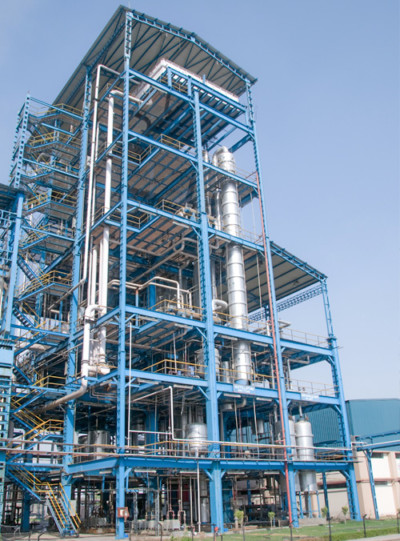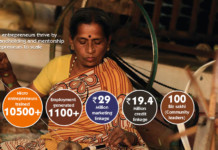Brazil’s Sugarcane Industry Association had a terrific display of benefits of using ethanol to ensure cleaner air in Indian cities at the Auto Expo 2020 in Greater Noida recently. Its campaign was called #BringBackMyBlueSky. This campaign was first introduced at the 25th Conference of the Parties on Climate Change (COP 25) in Madrid in December 2019.
Why does India need a campaign by a Brazilian sugar body to tell what it should do about clean air? Its press note read “The objective of the Brazilian campaign was to sensitize people about the toxic air quality in India’s urban centers and how ethanol can be a sustainable solution to this problem.” Don’t we know about it?
Eduardo Leão de Sousa, Executive Director of the sugar body said “Brazil was dealing with similar problems of air quality that Indian cities are facing today. However, with the robust ethanol policy, Brazil today has drastically cut down the CO2 emissions and created a healthier environment. Government of India too has taken considerable steps in this direction. Through this campaign, we aim to highlight the importance of clear blue skies in India and how the country can address this problem with sustainable ethanol solutions.”
India and Brazil recently signed an MOU to promote the use of biofuels and assist India in boosting its ethanol program.
Why is India Doing So Little on Biofuels?
India is the second largest producer of sugarcane in the world yet accounts for only 1% of the global production of biofuels. This includes 380 million liters of ethanol and 45 million liters of biodiesel. Official statistics show that if all these biofuels are successfully blended in the country, about 7.2% of the petrol consumption could get substituted. The Biofuel Policy of 2018 had fixed a target of achieving 20% ethanol blending with petrol by 2030.
Vijay Chibber, former secretary, ministry of road transport and highways, GOI, has argued in his article in LiveMint (https://www.livemint.com/Opinion/mF6QseomYZNcvZuUhyNDKI/Biofuels-an-opportunity-for-India.html) that India has immense potential to drastically reduce oil imports, offer employment to nearly a million, ensure cleaner air, especially during winters. He believes that an aggressive biofuel strategy and implementation could rid north India of the menace of crop burning in winters and put some good money in the hands of the farmers.
He writes “Imagine bringing down pollution levels by up to 90% in carbon emissions by public transport vehicles, eliminating stubble burning by farmers, instead increasing their incomes, reducing our foreign trade deficit and adding nearly a million jobs (during a period when no jobs especially blue-collar one’s are being added) by the Central and state government’s deciding on one major policy initiative—reduce taxes on biofuel-driven buses and trucks— available today.”
Mr. Chibber wonders why India has gone so aggressively on electric vehicle option when everyone knows there are several glitches to this journey. “The government appears to have put all its eggs in only one basket by making a major announcement to incentivize and go all-electric by 2030. First, this is a very aggressive goal for a middle-income country like India and second, even assuming that this were to happen, do we all need to suffer the ill-effects of pollution for another 12 years?
India’s transport policy needs to prioritize renewable vehicular fuels for large transport; e-mobility alone will not achieve the ambition of creating a sustainable transport sector.”
Prem Shankar Jha has convincingly argued in his 2018 book ‘Dawn of the Solar Age – And the End to Global Warming to Fear’ that most of India’s economic and environment problems can be addressed without much struggle in less than 5 years if it adopts a methanol driven economy.
So, why is India showing lack of will in solving its immediate problems when there are ready technologies, funds and immense social and economic benefits? Indeed sugarcane is a politically sensitive crop but it is in trouble because of lack of vision and leadership especially at the state government level.
Mr. Jha shows how powerful oil lobbies have been at work to thwart development of renewable energy sector across the globe in the last two decade. But it looks like their time is beginning to run out with solar and wind energy making strong inroads.
Now with Brazilian President warming up to India’s leadership by attending its Republic Day function on 26th January 2020, will we see a massive ethanol import plan in the offing?
This may be a good short-term development for the transport sector but would certainly deny potential incentives to struggling Indian farmers. Perhaps this could also prove as a threat to the unruly sugarcane cooperatives and their political bosses.
Like many other things, India has not used its extensive potential in biofuels and bioenergy and reap immense benefits. It’s suboptimal performance is now an opportunity to a country located on the other side of the globe.
Would be interesting to see the landed cost of Brazilian ethanol. It won’t be a surprise if it’s cheaper than ethanol produced and supplied by Indian firms as it happens in so many other commodities.









